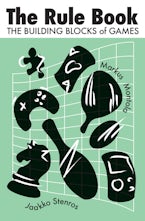Uncovering an archive of laughter, from the forbidden giggle to the explosive guffaw.
Most of our theories of laughter are not concerned with laughter. Rather, their focus is the laughable object, whether conceived of as the comic, the humorous, jokes, the grotesque, the ridiculous, or the ludicrous. In Laughter, Anca Parvulescu proposes a return to the materiality of the burst of laughter itself. She sets out to uncover an archive of laughter, inviting us to follow its rhythms and listen to its tones. Historically, laughter—especially the passionate burst of laughter—has often been a faux pas. Manuals for conduct, abetted by philosophical treatises and literary and visual texts, warned against it, offering special injunctions to ladies to avoid jollity that was too boisterous. Returning laughter to the history of the passions, Parvulescu anchors it at the point where the history of the grimacing face meets the history of noise. In the civilizing process that leads to laughter's “falling into disrepute,” as Nietzsche famously put it, we can see the formless, contorted face in laughter being slowly corrected into a calm, social smile. How did the twentieth century laugh? Parvulescu points to a gallery of twentieth-century laughers and friends of laughter, arguing that it is through Georges Bataille that the century laughed its most distinct laugh. In Bataille's wake, laughter becomes the passion at the heart of poststructuralism. Looking back at the century from this vantage point, Parvulescu revisits four of its most challenging projects: modernism, the philosophical avant-gardes, feminism, and cinema. The result is an overview of the twentieth century as seen through the laughs that burst at some of its most convoluted junctures.












